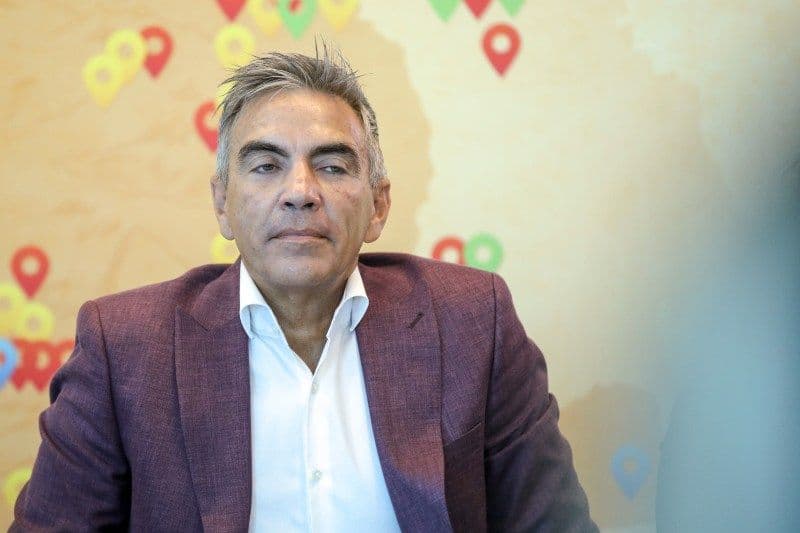The Curtains Fall on Digital Ostentation: Unpacking the MauMau ZK Case and Online Crime's Hidden Billions
MauMau ZK's arrest exposes a vast online gambling ring. Explore how digital fame cloaked a multi-billion-dollar money laundering scheme, revealing the hidden cost of illicit gains.
The Public Persona, The Private Crime
The digital landscape, often a stage for dazzling displays of success, recently saw the curtain fall on one of its most audacious acts. , better known as , a popular influencer celebrated for his humor and gaming content, was dramatically arrested in . This wasn't a celebrity scandal; it was a pivotal moment in , a sweeping police action against a sophisticated criminal enterprise. MauMau ZK’s detention, initially for illegal possession of a defaced restricted weapon, quickly revealed his deeper entanglement in a network promoting the illicit 'jogo do tigrinho' (little tiger game). This operation isn't just about illegal gambling; it targets a multi-billion-dollar scheme involving money laundering, organized crime, fraud, and misleading advertising, all while exploiting public trust and the allure of quick wealth. The sheer audacity of these individuals, brazenly flaunting their luxury lifestyles online even as they engaged in serious criminal activity, speaks volumes about their perceived impunity. The contrast between their curated digital fame and the dark underbelly of their operations is truly striking, offering a sobering glimpse into how easily online influence can be weaponized for illicit gain.
The Mechanics of Deception: How Illicit Games Prey on Trust
Behind the glamorous facade promoted by influencers like MauMau ZK lay a meticulously structured criminal organization. The police investigations revealed a clear division of labor, with key roles assigned to 'divulgadores' (the influencers themselves), financial operators, and a web of shell companies. This intricate setup was designed to promote the 'jogo do tigrinho' with deceptive promises of easy money, luring in unsuspecting victims, particularly vulnerable residents in marginalized communities, who often fall deeper into addiction and financial ruin. The scheme’s 'publicity arm' comprised individuals like and , who acted as 'agenciadores' or recruiters. Their role was to enlist influencers, offering them a percentage of the illicit profits generated from their promotional activities. The scale of their financial involvement is staggering; Tailon, for instance, reportedly moved R$18 million in just one year. This highlights how trust in online personalities was systematically exploited, turning seemingly innocuous social media posts into potent tools for large-scale financial predation.
Tracing the Billions: Unveiling the Money Laundering Machine
The sheer financial scale of this illicit operation is mind-boggling, painting a stark picture of the hidden billions flowing through online crime. Reports from (Brazil's Financial Activities Control Council) unearthed over R$4.5 billion in suspicious transactions linked to the scheme. One report alone detailed R$2.7 billion in atypical movements, while another flagged R$26 million. The influencers, the public face of this scam, were found to have irregularly moved approximately R$40 million themselves over two years. Consider , known as , who inexplicably moved R$9 million in a single year, an amount completely disproportionate to her declared income and micro-enterprise capacity. A critical component in this money laundering machine was the involvement of payment intermediary companies, most notably , with identified as a key partner. After the funds were collected from victims, they were 'pulverized' – spread thinly across numerous bank accounts belonging to third parties and shell companies, a classic tactic to obscure the true origin and destination of the money. This intricate web of financial maneuvers was specifically designed to hide the vast sums generated from illegal gambling, making it incredibly challenging for authorities to trace.
Influencer Inc. and the Allure of Easy Riches
The MauMau ZK case throws a harsh spotlight on the dark side of influencer culture, where the pursuit of 'easy riches' can lead to complicity in serious crime. Influencers were, in essence, the marketing department of this massive illicit operation, leveraging their carefully cultivated digital personas and follower counts to promote the 'jogo do tigrinho.' Figures like , known from reality TV, and , a celebrity daughter, along with artists like and content creators such as (Gato Preto), became unwitting or willing conduits. Their appeal, whether through humor, ostentatious displays, or their existing fame, made them highly effective in luring in a broad audience. The incentive was clear: a direct percentage of the profits generated from the players they brought in. This model turned their online presence into a direct revenue stream for the criminal enterprise, blurring the lines between legitimate digital entrepreneurship and outright criminal facilitation. The police have already identified more 'agenciadores,' hinting that the next phase of investigations will reveal even deeper connections within this influencer-driven illicit network.
The Fading Illusion: What MauMau ZK's Case Means for Digital Platforms
The arrest of MauMau ZK and the broader serve as a stark wake-up call, signaling a significant shift in how law enforcement is approaching online criminality. The police explicitly noted the 'sense of impunity' displayed by the suspects, who continued to openly promote illegal gambling even as investigations were underway. This brazenness underscores a critical challenge for digital platforms: how to effectively monitor and regulate content that, while seemingly innocuous on the surface, directly facilitates illegal activities. The case highlights the urgent need for social media companies to enhance their oversight mechanisms, not just for content violations but for financial crimes enabled by their platforms. It forces a reckoning with the responsibility platforms bear when their services are exploited to defraud and exploit vulnerable populations. The illusion of 'easy money' and unchecked digital ostentation is now fading under the harsh glare of legal scrutiny, demanding greater accountability from influencers and, more importantly, from the digital ecosystems that allow such schemes to flourish. This case is a clear warning shot, indicating that the era of unchecked digital criminality is drawing to a close.
Related Articles

The Eight-Year Extortion: Unmasking the ANAF Inspector's 'Protection Tax' Empire

The Eight-Year Extortion: Unmasking the ANAF Inspector's 'Protection Tax' Empire

Unmasking the Digital Battleground: Mariya Pogrebnyak and the Shifting Sands of Celebrity Loyalty

Unmasking the Digital Battleground: Mariya Pogrebnyak and the Shifting Sands of Celebrity Loyalty

The Farmhouse Files: Unraveling Islamabad's Disturbing Illicit Meat Network

The Farmhouse Files: Unraveling Islamabad's Disturbing Illicit Meat Network

The Unsettling Tide: Navigating Trust and Transparency in the Wake of the eFishery Scandal
